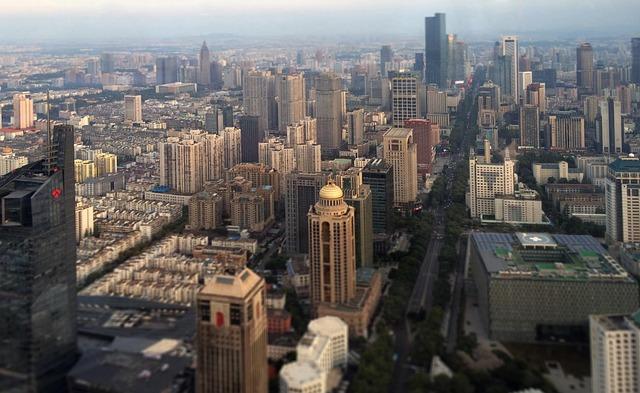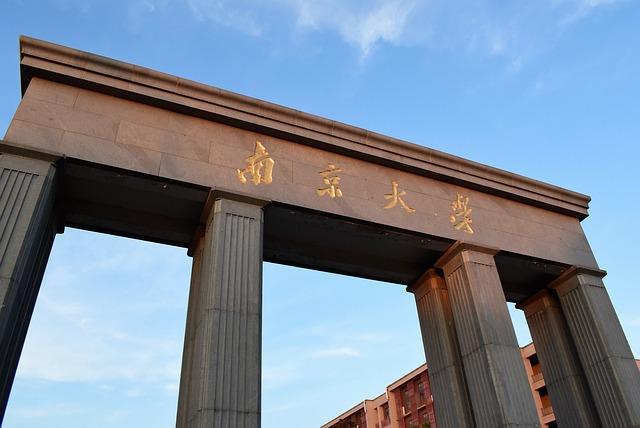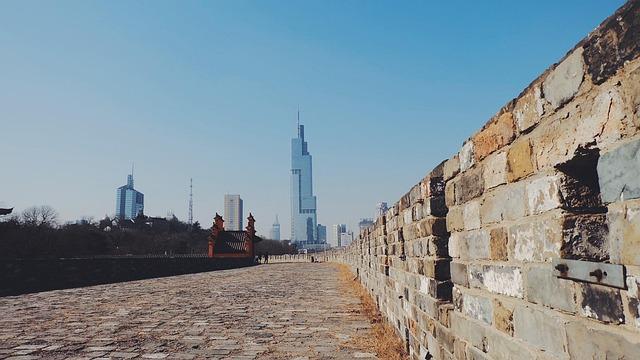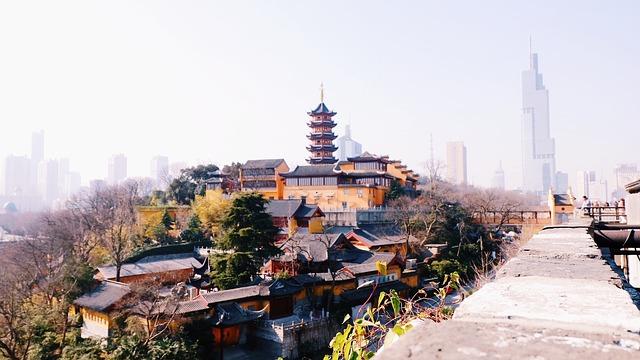In a poignant reflection on one of history’s darkest chapters, Euronews presents a comprehensive exploration of the commemoration of the Nanjing Massacre in China. This somber event, which unfolded over six weeks in late 1937, saw the brutal killings, assaults, and atrocities committed against Chinese civilians by the Imperial Japanese Army. As China grapples with the lasting impact of this trauma, annual memorials and ceremonies serve not only as a reminder of the past but also as a call for remembrance and reconciliation. This article delves into the significance of these commemorations, the perspectives of survivors and historians, and the broader implications for China’s collective memory and national identity. Through a detailed lens, we will examine how the legacy of the Nanjing Massacre continues to resonate in the cultural and political landscape of contemporary China.
Commemorating the nanjing Massacre: A Historical Overview of the Tragedy

The Nanjing Massacre, also known as the Rape of Nanking, remains one of the most harrowing incidents in modern history, marking a devastating chapter during the Second Sino-Japanese War. Between December 1937 and January 1938, the Imperial Japanese Army captured Nanjing, the then-capital of China, resulting in widespread atrocities against civilians. Over the course of six weeks, an estimated 200,000 to 300,000 people lost their lives, and countless others suffered unspeakable violence, including mass rapes and torture. This dark period is commemorated annually on December 13, the day nanjing fell, serving as a solemn reminder of the fragility of peace and the importance of historical memory.
The commemoration events not only honor the victims but also serve as a platform for education and reflection on the consequences of war. Activities include memorial services, exhibitions, and public discussions aimed at fostering understanding and encouraging dialog about reconciliation. In recent years, memorials such as the Nanjing massacre Memorial Hall have become sites of pilgrimage for those seeking to remember and learn from the past. The hope is that by keeping the memory alive, future generations will be inspired to work towards a more peaceful and just world.
the Role of Memory in Modern China: Understanding the Nanjing Massacre today

The Nanjing Massacre remains a poignant symbol of China’s complex historical narrative, evoking deep emotions and fierce debates over memory and reconciliation. As citizens and officials commemorate the atrocities of the past,the massacre’s remembrance transcends mere acknowledgment; it serves as a catalyst for national identity and unity.This event is marked annually on December 13th, not only honoring the victims but also reinforcing a collective memory that shapes modern Chinese society. While commemorative events draw attention to historical injustices, they also reflect China’s contemporary struggles in addressing its past and the implications for current Sino-japanese relations.
Memory, in this context, plays a critical role in fostering a shared understanding among the populace. Events like memorial services and public education campaigns emphasize the importance of remembrance, encapsulating key themes such as:
- Historical Accountability
- National Unity
- Victim Recognition
- Global Awareness
Through these commemorations, China seeks to cultivate a sense of awareness and responsibility, ensuring that the narratives surrounding the Nanjing Massacre are not only preserved but also instilled in future generations. This process of memory construction is vital for both the healing of collective wounds and the shaping of a resilient national identity that acknowledges the complexities of its historical experiences.
Impact of Commemorative Events on National Identity and Reconciliation

The commemoration of significant historical events, such as the Nanjing Massacre, plays a crucial role in shaping a nation’s identity and fostering reconciliation among its people. These commemorative observances serve multiple purposes, creating a platform for remembrance and reflection. Through the act of remembering, societies can acknowledge historical injustices, which promotes a collective identity rooted in shared experiences and understanding. Moreover, these events frequently enough encourage dialogue about the past, which can be essential for healing wounds that divide communities. This remembrance can also counteract historical amnesia, reminding future generations of the lessons learned from such tragedies.
Additionally, commemorative events can serve as a catalyst for national reconciliation by fostering empathy and understanding among diverse groups. When communities gather to remember painful chapters, such as the Nanjing Massacre, it facilitates conversations that can lead to mutual recognition of suffering and, ultimately, forgiveness. Key elements in the effectiveness of such commemorations include:
- Inclusivity: Engaging all stakeholders in the process of remembrance.
- Education: Incorporating historical education in remembrance activities to inform attendees.
- Dialogue: Creating spaces for open conversations about the effects of historical events.
Through these approaches, commemorative events can contribute meaningfully to a nation’s quest for unity and peace, transforming collective memory into a foundation for a harmonious future.
Challenges of Remembering: Balancing Historical Narrative and Contemporary politics

The act of remembrance serves as a dual-edged sword in the context of historical events like the Nanjing Massacre. While it is indeed crucial for honoring the victims and acknowledging the brutal realities of the past, the manner in which this history is commemorated can become entangled with contemporary political agendas. Political leaders may exploit these narratives,shaping public perception and national identity,frequently enough leading to a selective retelling of events that aligns with current ideological battles. This manipulation can hinder an honest discourse about the past, as differing interpretations may provoke tensions not only within a nation but also in international relations.
Furthermore, the challenge of reconciliation arises when a society attempts to confront its history while moving towards a politically cohesive future. The following factors illustrate this complexity:
- Nationalism vs. Historical Truth: Striking a balance between fostering national pride and acknowledging historical injustices.
- Memory Politics: The influence of historical commemorations on present-day political strategies.
- Cultural Memory: The role of collective memory in shaping societal values and behaviors towards past atrocities.
Embedding these lessons within public discourse remains crucial, as the dialogue surrounding such memorials often acts as a mirror reflecting both the successes and failures of a country’s progress. Only by navigating these challenges can societies hope to build a future that honors the lessons of history while fostering unity.
Global Perspectives: How International Communities View the Nanjing Massacre

The Nanjing Massacre remains a profound and painful chapter in history, eliciting diverse reactions from international communities. For many, the event is not merely a historical tragedy, but a stark reminder of the need for reconciliation and remembrance. This viewpoint encourages countries across the globe to reflect on their own histories of conflict and violence. Some nations actively support memorialization efforts,advocating for educational initiatives that highlight the massacre’s significance and underline the importance of preventing similar atrocities in the future.
Contrastingly, a number of governments maintain divergent views on the Nanjing Massacre, frequently enough shaped by complex political dynamics and national relations with China. This complexity can lead to polarized interpretations and discussions about the event. Key responses can be categorized as follows:
- Supportive communities: Many historians and advocates in Europe and America emphasize the importance of historical accuracy and recognition.
- Controversial stance: Some nations within East Asia grapple with the implications of acknowledging the massacre, due to diplomatic sensitivities.
- Scholarly discourse: International universities and think tanks engage in research and discussions to promote a deeper understanding of the event’s implications.
To visualize this intricate landscape of international responses, the table below illustrates the varying degrees of acknowledgment and commemoration efforts made by select countries:
| Country | Response Type | Commemorative Efforts |
|---|---|---|
| United States | Supportive | Educational initiatives, scholarly publications |
| Japan | Controversial | Limited public discourse, historical revisionism |
| South Korea | Supportive | Formal acknowledgment in history curricula |
| Germany | Supportive | Focus on reconciliation through historical lessons |
Recommendations for Future Commemorations: Fostering Dialogue and Understanding
Moving forward, future commemorations of significant historical events like the Nanjing Massacre should prioritize creating an atmosphere conducive to dialogue and understanding among diverse groups. This can be achieved through various approaches:
- Inclusive Narratives: Emphasize the inclusion of multiple perspectives, especially from survivors, historians, and affected families, to create a more holistic narrative.
- Educational Programs: Develop workshops and programs aimed at schools and communities to educate the next generation about the significance of the events and their implications on modern society.
- International Cooperation: Encourage partnerships with organizations focused on peace, history, and reconciliation to promote global understanding and foster collaboration across borders.
Furthermore, the use of technology can enhance commemorative events, making them more accessible to a broader audience. Innovative strategies include:
- Virtual Reality Experiences: Implement immersive VR experiences that allow users to engage with historical events, offering emotional and educational insights.
- Social Media Campaigns: Leverage platforms to share stories and facilitate discussions, encouraging user-generated content that reflects a variety of perspectives.
- Interactive Exhibits: Create exhibitions that invite audience members to contribute their own thoughts, fostering a communal space for reflection and discourse.
Wrapping Up
the commemoration of the Nanjing Massacre serves not only as a solemn remembrance of the past but also as a critical reminder of the importance of historical awareness and reconciliation. As survivors and their descendants gather to honor the victims, the ongoing discussions about the events of 1937 highlight the need for reflection on the impacts of war and the significance of peace. Euronews continues to follow these narratives, shedding light on the complexities of historical memory and its role in shaping contemporary society. As we move forward, it is indeed essential to engage with these difficult histories, ensuring that such tragedies are neither forgotten nor repeated.















